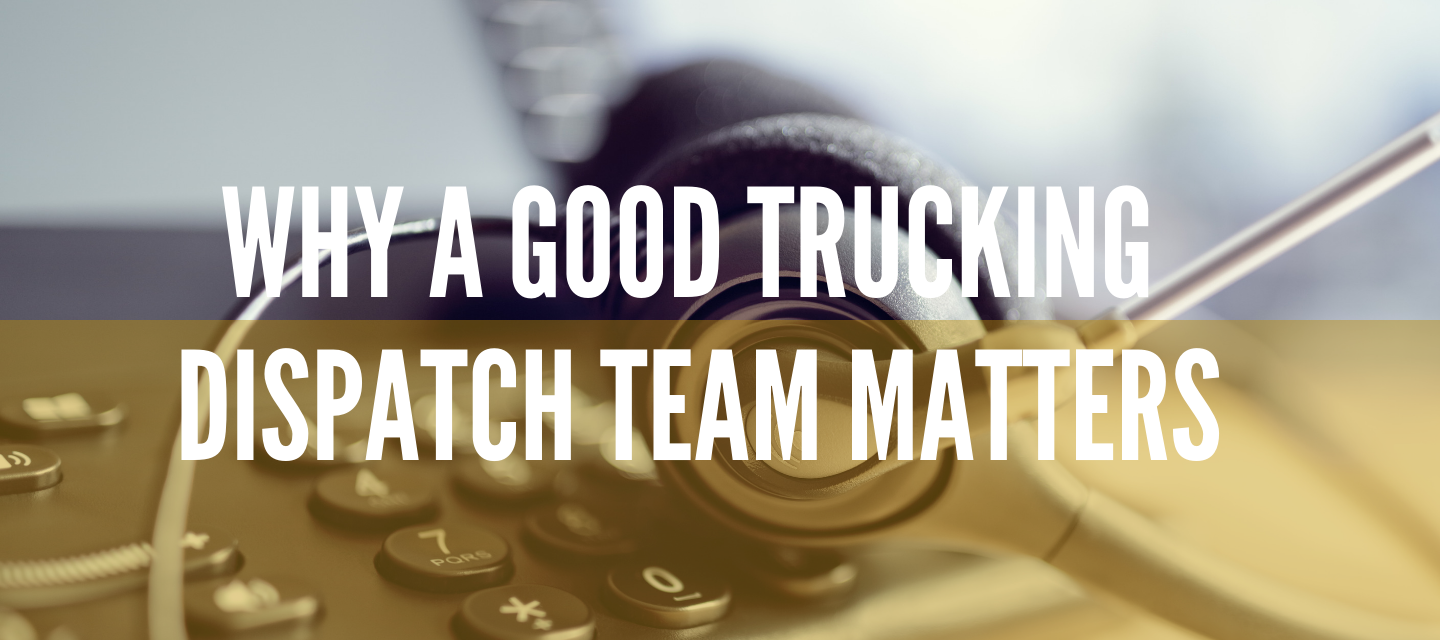Why a Good Trucking Dispatch Team Matters

Ask someone who has had to learn the hard way, and they will definitely tell you that not all dispatch teams are created equal. There are many ways that trucking dispatch affects drivers out on the road and during home time, so it is a great idea to understand how dispatch works before getting behind the wheel for a company. Here is an explanation of the various styles of trucking dispatch, and some of the ways your dispatch team can impact your driving experience.
What is a Trucking Dispatcher?
If you're new to trucking, the concept of a dispatcher might be a little confusing. Dispatchers are employees of trucking companies who are tasked with communicating with drivers or customers, sometimes both. These individuals are at the front lines of communication between the trucking company, customers, and drivers, so the positive or negative impression they make is incredibly important.
There are several ways that trucking companies run the dispatch portion of their business. However, it usually boils down to one main factor: company size.
How Does Trucking Dispatch Work?
Larger Companies Versus Smaller Companies
Larger trucking companies usually have a set of employees who work directly with the customers, and a separate set of employees that work directly with drivers. Those who work with customers are referred to as customer service representatives and they book loads with customers and pass those available loads on to the fleet managers. Fleet managers are dispatchers who work directly with drivers to assign them the loads that the customer service representatives booked.
This segmentation is necessary for larger companies because there are many loads being processed each day. The specialization allows for more efficiency in their internal workflows. The obvious downside of this model is that the dispatcher or fleet manager who is in communication with the driver has very little control over the loads they are dispatching. Customer service reps have more control over the loads, but little to no knowledge of specific driver needs and requests.
The downside of this system is that drivers may get the run around with longer wait times and less flexible dispatches. It can also mean that eager customer service reps may take on more customer loads than the fleet can realistically fulfill leading to customer frustration.
Which Dispatchers Work With Which Drivers?
Assigned Dispatchers
In many companies, drivers are assigned to specific dispatchers or fleet managers. For these companies, drivers always deal with the same person. This is a system that works well for some companies and drivers, but not all.
The upside of this style is that it allows you to get to know your dispatcher well. They will learn how you like to run, where you like to go, and when you like to be off.
The downside is if you and your dispatcher don't connect, you are still stuck with them.
On the flip side, if you do connect with your dispatcher/fleet manager and they are ill or on vacation, you might struggle to communicate with whomever is filling in.
You might also find that dispatchers who are booking freight nationally have less inside knowledge about customers and therefore more difficulty finding return loads or getting optimal appointment times.
Regional Dispatchers
At K & J, because we are a smaller carrier, our dispatchers work with both customers and drivers. Our team is broken up by region of the country. This allows our team members to get to know customers in their specific areas and build close relationships that help ensure our drivers the best return freight back to our terminals.
Because we run a region-based dispatch, all of our dispatchers work with most of our drivers. The only exception is drivers who work dedicated, regional routes. Regional drivers are less likely to have contact with the members of our team who serve distant areas of the country.
This regional system requires that we take detailed notes on our drivers and their plans and update our system so that all dispatchers are working with the same information.
The advantage is that our drivers have more than one person to turn to who are familiar with their habits, plans, and personality. We have found that the system usually works very well and allows both our drivers and dispatchers some variety in their days.
Our customers also love this model because they get to know a dispatcher who is familiar with the entire fleet and can more accurately accept loads.
Why Does the Team Atmosphere Matter?
At K & J we believe in the importance of creating a dispatch team, not just fostering good individual dispatchers. Focusing on the team allows us to give our best to our drivers and make sure good communication is always at the forefront. It also ensures that when dispatchers are sick or on vacation we don't leave drivers hanging or miss important notes or requests.
Dispatchers, or fleet managers and customer service reps, handle an alarming amount of information each day. Your ability to get home and see your family for special events is in their hands. The scheduling of your appointment times and communication with customers is in their hands. Finding and booking return loads is in their hands.
As you can imagine, being a dispatcher is a stressful job. If you want to know what it will be like driving for a company, talk to current drivers and ask them about their relationship with dispatchers or fleet managers. Ask recruiters about the longevity and experience in the dispatch office. Look for companies that value honesty, integrity, and longevity in their dispatch team and create a system that benefits the driver, not just the bottom line.
We firmly believe that you can't have a good trucking company without good dispatch team. And you can't have a good dispatch team without honesty and integrity within the company. These factors always go hand in hand. Set yourself up for success by asking the hard questions, because a good dispatch team matters.
Do you have more questions for us? We answered 100 of them! Click below for more information.

